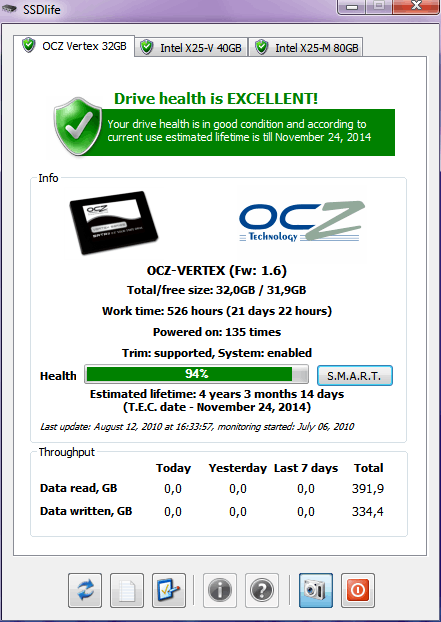19
7
Having an SSD for the only drive in my laptop I'm wondering which of shutdown / hibernate / sleep causes the least wear to it? Is there any serious test that would measure that?
Suppose that the laptop is in daily use with mostly common business apps running (Chrome, FireFox, Word, Excel, OneNote, etc.), sometimes a vmware machine. The OS is Windows 7 Enterprise.

7You're worrying too much. :) – Ƭᴇcʜιᴇ007 – 14 years ago
Agreed with @techie007, you shouldn't really worry about this at all. That being said I think shutting down and restarting results in the most hard disk operations. – slhck – 14 years ago
6@slhck: Hibernate saves memory and thus writes a lot more to the disk than when you would shutdown and boot which are mostly reads. SSD wears significantly more from writes than it does from reads. – Tamara Wijsman – 14 years ago
@Tom Yes, that's of course true! But how come my Macbook (for example) goes to sleep within seconds - although it would theoretically have to save Gigabytes of RAM content to the drive? – slhck – 14 years ago
I'm not truly worrying about it. However, I think it would be at least interesting to know :-) – Ondrej Tucny – 14 years ago
4@slhck: That's because hibernate isn't sleep. :) – Tamara Wijsman – 14 years ago